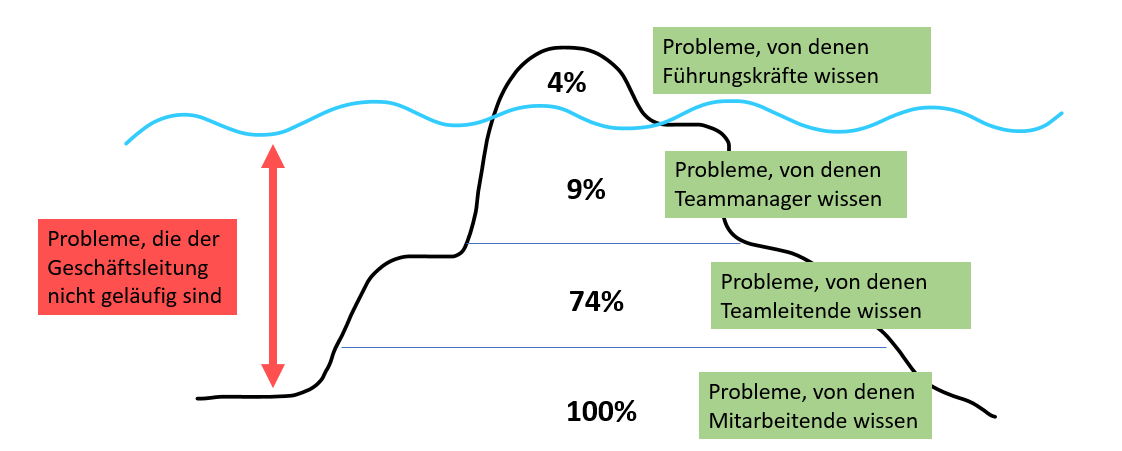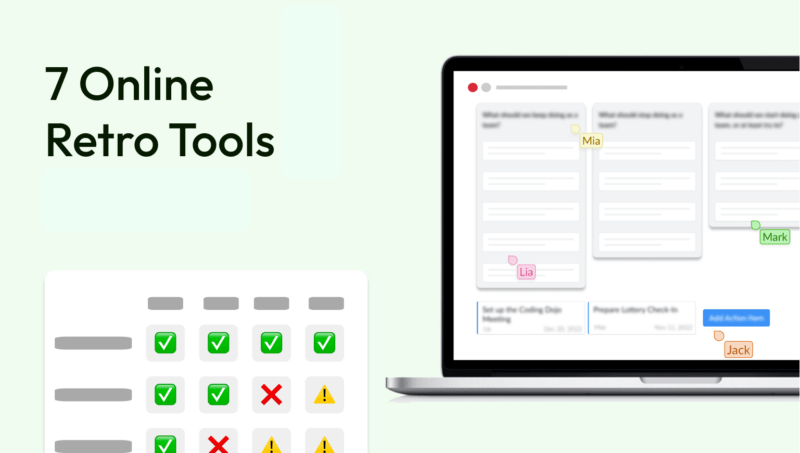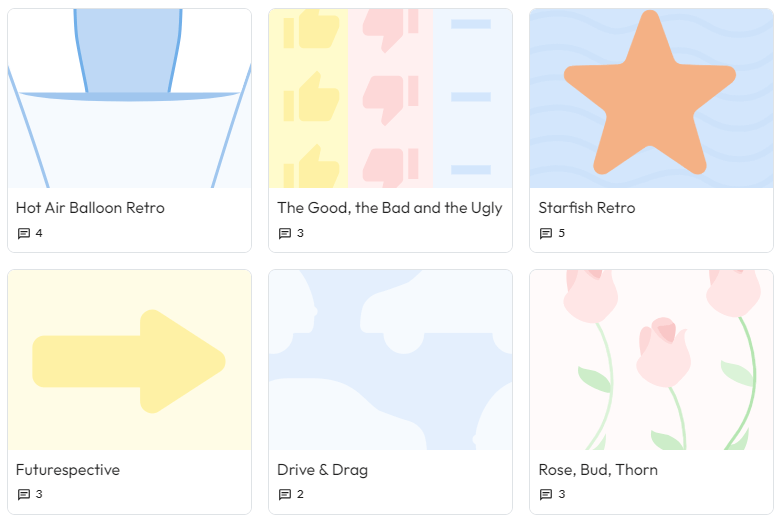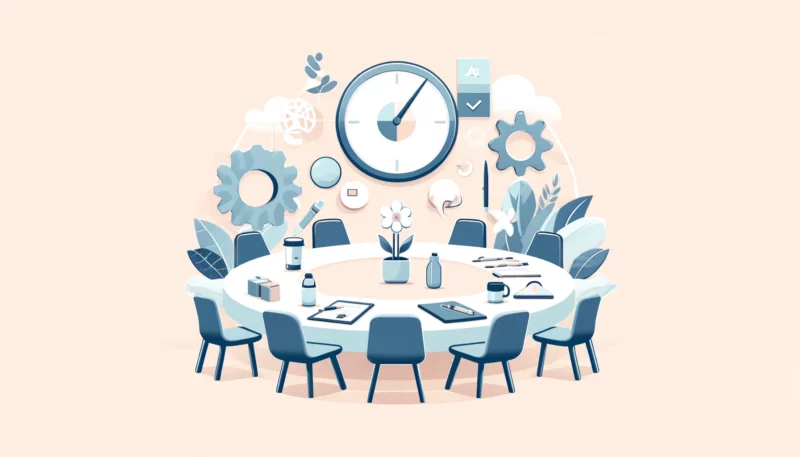Team work: agile, efficient and a resource for employees and organizations. That not only sounds great, it is so. In order for team work to really function as a resource and to work together as an agile team, various requirements must be met.
The chances (see Scholl, 2005) that are behind good teamwork are almost obvious:
- In cross-functional teams in particular, the required knowledge can be distributed by combining different skills
- Complex tasks can be solved better in this way
- The acceptance of joint decisions increases
- Mutual support is improving
- Work motivation and engagement of employees increases
- Last but not least, job satisfaction can be increased and stress reduced
One aspect is particularly striking: The members of an agile team share their knowledge in order to solve problems and achieve goals together.
In the following, we will show you why it often fails and how you can solve it.
Swarm knowledge and icebergs
In order to get the maximum benefit from agile teamwork, it is important to know and understand the core objective and the core problems of agile cooperation.
In an agile work environment, organizations and teams pursue the goal of creating “shared knowledge”. This means that employees share their individual knowledge and experience with each other.
The benefits are immediately apparent and research shows that shared knowledge has a positive impact on performance (Nelson & Cooprider, 1996).
Unfortunately, such a mentality does not yet exist in many companies. The key problem here is that employees often keep their knowledge to themselves and do not share problems for the time being. This phenomenon is called the “Iceberg of Ignorance & #8220 ;.

This shows that in many companies difficulties are not communicated openly and therefore cannot be transferred to “shared knowledge”.
Obstacles to shared knowledge
In addition to classic team meetings, some agile teams use so-called retrospectives to reflect on the collaboration. These are a suitable basis for knowledge exchange and agile cooperation. If you would like to refresh your knowledge of retrospectives again, please read our FAQs .
While such retrospectives secure the space for an open exchange, they are not a sure-fire success, because there can be some difficulties in agile collaboration & #8230;
- Unfavorable team communication
Often, employees simply don't dare speak about difficulties because they are afraid of embarrassing themselves or being convicted. Also in Retros there are not always targeted questions and therefore the real causes of the difficulties are not addressed. Our can tool be helpful, as it was specifically developed to ask targeted questions and to guide the retros in the right direction. - The team has not yet grown together far enough
Especially when agile teams are still in an initial phase of development are often missing trust among themselves and the feedback culture is not yet mature. - Ignorance of the degree to which common goals have been achieved
Due to the lack of exchange, team members often do not know at what point you are in the goal achievement process. This can create the feeling that your own work is not integrated in the common process.
Working retros are therefore an important basis for effective and satisfactory cooperation. It is relevant that sharing and complications are practiced and encouraged. This is the only way agile cooperation can work and a synergetic team can emerge.
Practical tips for agile collaboration & Shared knowledge
Think again about the three core problems that prevent teams from acting optimally together. We have three simple exercises for you that you can use to develop into an agile team.
Unfavorable team communication
Use your next team meeting to think about what is wrong with your collaboration and what is developing 3 & #8211; 4 statements about what you want to change. For example, one statement would be “I often notice that my work helps others.” Now I am continually checking how much this is true. You can find items like this and many more in our tool, which can make the transformation easier for you.
The team hasn't grown that far yet Sounds banal, but helps: Starts in meetings with a check-in. This means that you do not start working straight away, but take a short time to talk about your constitution, thoughts or concerns. It is important that everyone has their say and the topics are not related to factual questions. So your next retro may start with the question: How are you on a scale of 1 & #8211; 10 and why? This leads to the fact that one can deal with team members who may be ailing much more sensitively.
Ignorance of the degree to which common goals have been achieved Simple but effective: create a timeline of your ongoing processes and check each retrospect briefly how far you have come on the timeline. It is easy to determine whether it is going ahead or whether you are going in circles. You can also check how you can continue to work and what you are missing for the next step.
How can we help with the topic of “shared knowledge”?
At Echometer, we understand how to transform TeamWork and promote it in the long term. With the help of psychological know-how and ours Team retrospective tool We have developed for teams like your optimally tailored items that ensure that you soon develop a mature “shared knowledge”.
References
Scholl, W. (2005). Basic problems of teamwork and coping with them & #8211; A causal model. In M. Högl & HG Gemünden (ed.), Management of teams. Theoretical concepts and empirical findings (3rd ed., Pp. 33-66). Wiesbaden: Gabler.
Nelson, K., & Cooprider, J. (1996). The Contribution of Shared Knowledge to IS Group Performance. MIS Quarterly, 20(4), 409-432. doi: 10.2307 / 249562








